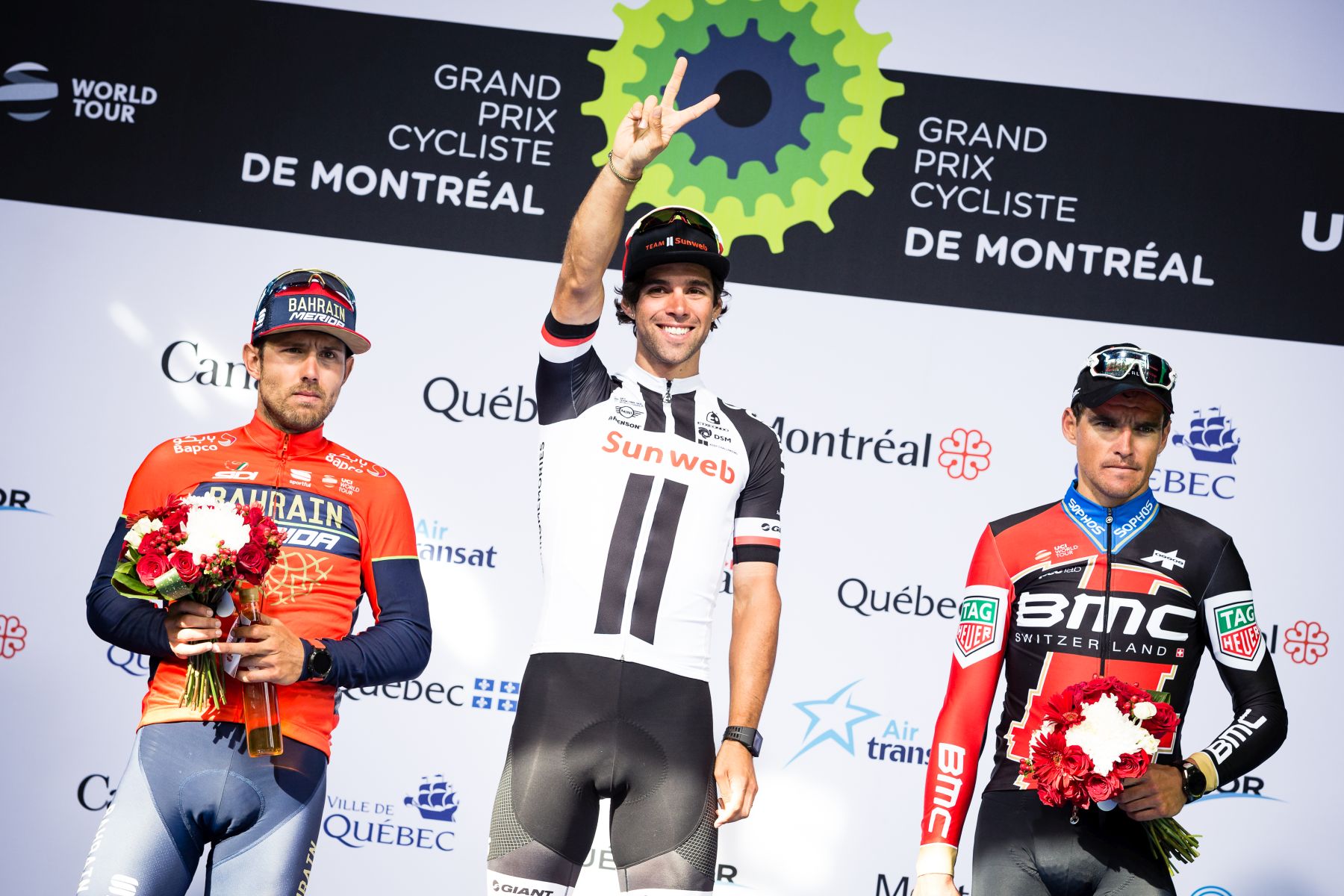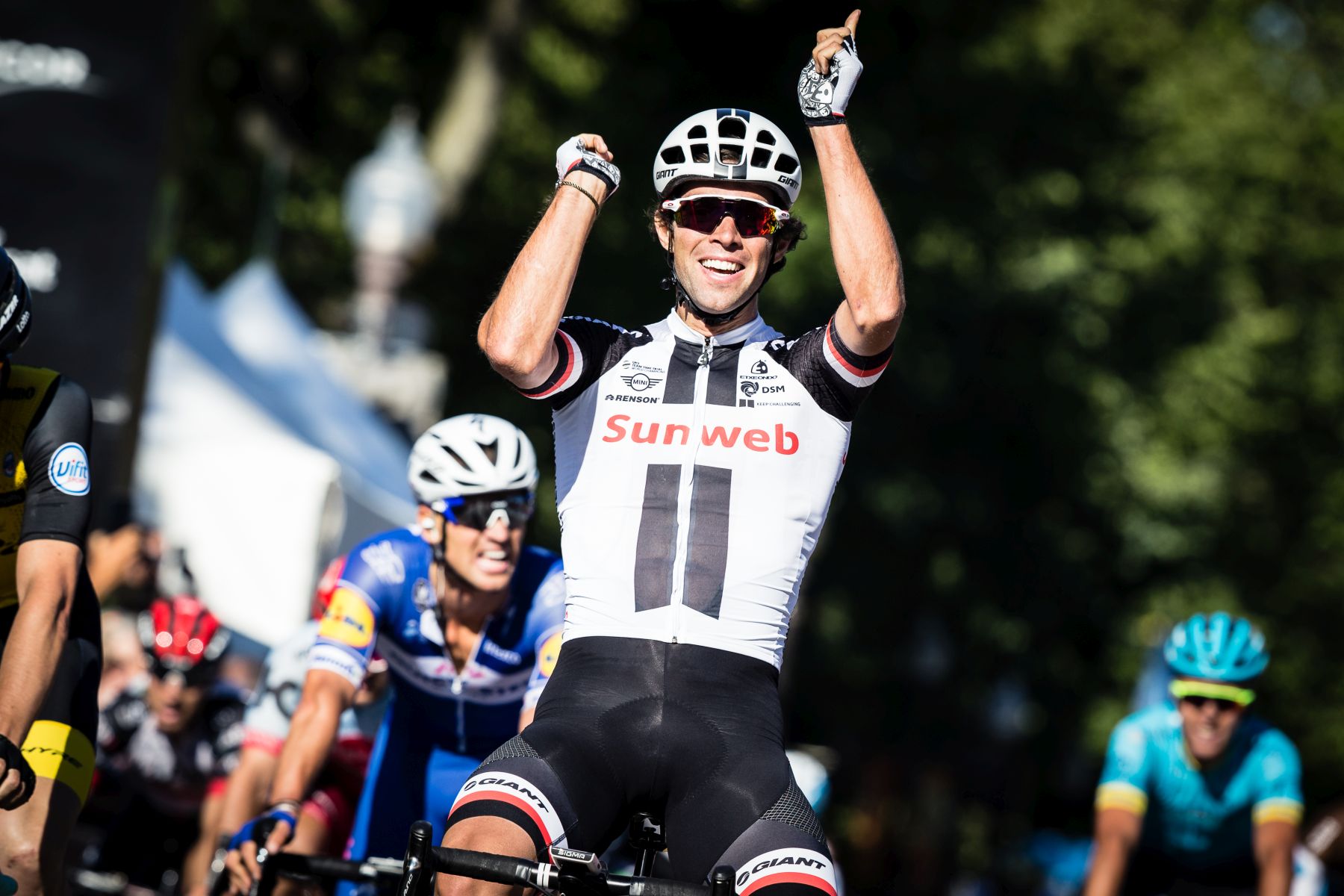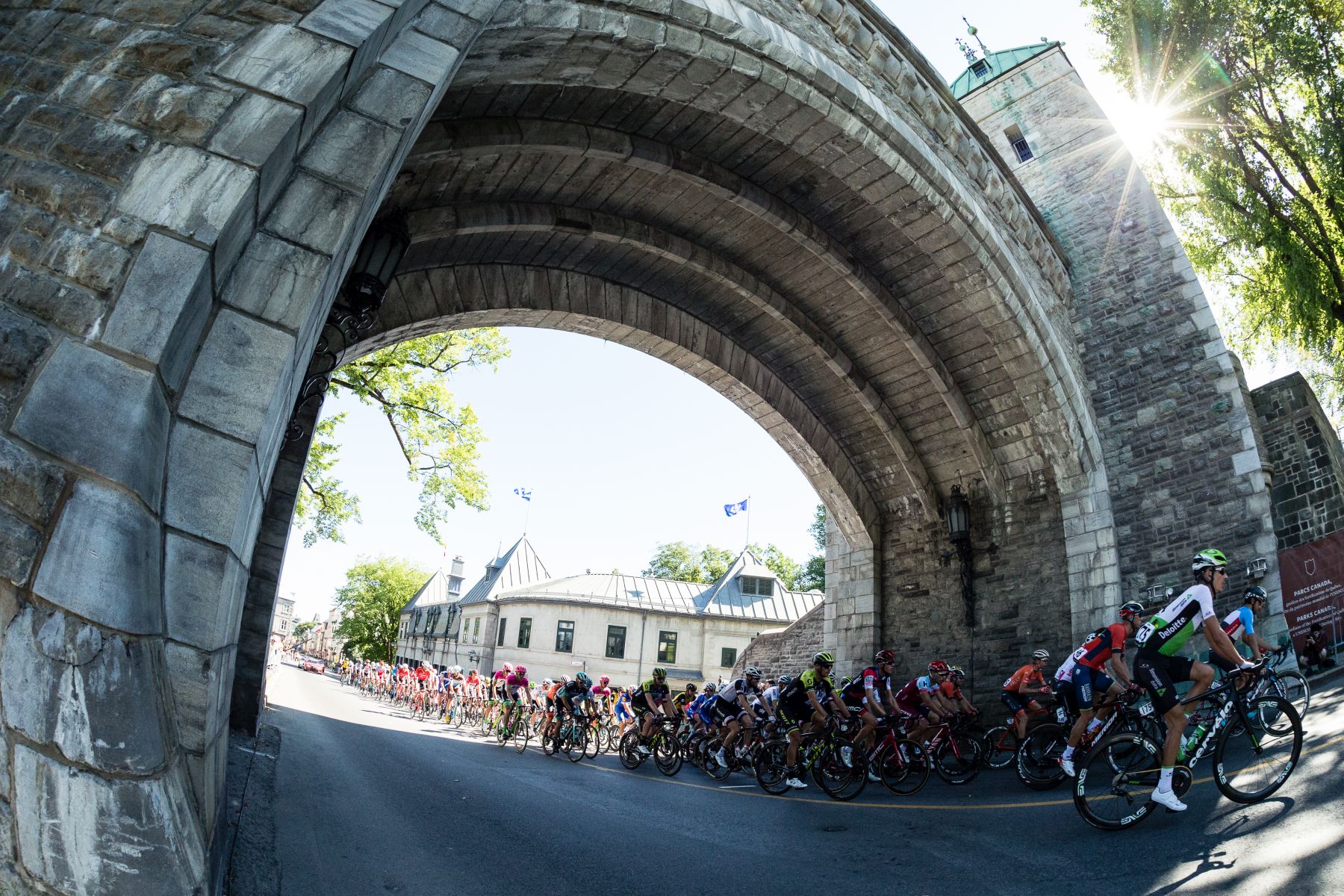Michael Matthews on the Quebec Grand Prix races
The Australian fast man looks back at his 2018 double and the strategies and tactics within the Canadian Classics

Do you remember what first brought you to the Grands Prix Cyclistes de Québec and de Montréal in 2012?
It was always in the plan to do the Canadian Classics in my second year as a pro. They are similar courses to what I experienced in Australia in 2010, where I won the under-23 world championships. I was really looking forward to the races in 2012. I did the sprint rounds in Quebec City, so I was a bit tired for the actual race. I ended up fourth in the sprint round. It was almost like a short stage race with the sprint challenge, and both Canadian Classics.

Of the two races, you seem to place better in the Quebec races, in general. Does that course suit you better?
I think the climbs are a little bit shorter in Quebec than in Montreal. There’s a little bit less climbing in Quebec. You have a bit of time in between to recover. It’s like a one-minute push on the climbs. In Montreal, the longest climb is about five minutes. The other ones are about two minutes so Montreal suits the climbers a little bit more than the punchy guys. But, in 2018, I really worked toward being able to do the longer climbs to make sure I didn’t get dropped.
In Quebec last year, it looked like you left the final sprint until late. You launched at about 200 m to go.
I was pretty confident going into the sprint. I’ve also missed out on a couple of wins there the past few years just from being in the wrong position. Normally, the sprint starts to weave all over the road, so you can get quite blocked if you try to come from behind. The guys in front really have control of the sprint. Last year, I tried to make sure that I was in a good position and that I’d have free air to do my sprint. I had a really good last 200 m to be able to win the race. But, it was all about positioning between 3 km and 1 km to go. That was really the crucial point that I was missing the years before. Last year, I was already second or third wheel with 2 km to go. Then guys just kept coming around to pull the lead-out for their sprinters. It just kept working out better and better for me that I didn’t have to do anything until the last 200 m.

After winning in Quebec last year, how did you feel about the following Montreal race?
I was super happy with winning in Quebec. That was always the goal. Then, basically, I had nothing to lose going into Montreal. I just went into it thinking, whatever happens, is a bonus. I guess, I knew that no one could really drop me on the climbs. I knew I had a really good sprint in the final. I went there with really high confidence and just raced. My team rode the race like we wanted it.
I was a little bit far back on the final corner. I thought it was done there, actually. I’d have to pass all these super-strong guys in front of me so I didn’t think a win was possible anymore. I think I was sixth wheel with 300 m to go. It wasn’t ideal. I launched my sprint when I felt the time was right. I went really far to the right to see what would happen. There was a little gap between Greg Van Avermaet and Sonny Colbrelli. I could get into the slipstream of Colbrelli and just come around him on the finish line. I definitely didn’t expect that. I was racing with my heart and having fun.

Simon Gerrans was the first rider to win in both Quebec and Montreal in the same year. Is there anything you took away from his double in 2014?
I was on the same team as Simon when he won both races, but I was in the Vuelta a España at the time. We watched both of those races. It was pretty amazing to see someone win on each course as they’re two pretty different races, especially for punchy riders like us. Last year, my plan was for my team to ride like GreenEdge did for Simon. They pulled the sprint both days with a super strong lead-out. Obviously, Simon was super strong, too, to finish it off. Their teamwork was pretty on point.
In 2018, I knew I was probably the fastest guy there, but not the best climber. We were a little bit caught out with positioning in Quebec. I just stuck to the plan and made sure I was in position to ride it similarly to what Simon did. So, yeah, I took a lot of what he did, learned from it and used a bit of it in winning my double.
After appearing in these races five times, how do you feel about them?
They’ve always been the pinnacle of the end of the year. You get to get out of Europe. All the people are nice and friendly. It’s a different style to what we race in Europe the whole year. I think every year it’s getting bigger and bigger, like with any race these days. Racing all year in Europe, you get a little bit caught up in it, maybe not enjoying it as much. Then you go over to Canada and free up your mind a little bit. It’s like a fresh start almost at the end of the year.
How do some of your colleagues feel about the Quebec and Montreal?
For guys who like circuit races, there’s not so many that we get to do these days. Circuit racing is super fun. There’s always something going on. You always need to be in a good position. You always need to be thinking about what’s coming next and saving energy. It’s really a thinking game, which keeps you on your toes.

After nine years, do either of the races have a set strategy for winning?
I think Quebec, nine times out of 10, is going to be a sprint. A lot of guys try to attack, but in the end, the gap between the two final climbs is too long and the climbs are probably too short to really drop guys out of the race. A lot still have teammates for their sprinters. So Quebec is normally for punchy sprinters, which narrows it down. Montreal is more open. Different things can happen. Really good climbers, not pure climbers, can make a difference on the long climbs. It’s not guaranteed that they’re going to stay away. I think the last few times I’ve done it, the breakaway has stayed away at least once. You never really know what’s going to happen.
Will you defend your 2018 wins in 2019?
I think it will be my first time wearing No. 1 in a Classic. For me, that’s pretty special. I’ll try to defend the two first places. If I don’t, then I don’t. Obviously, it’s going to be difficult.
